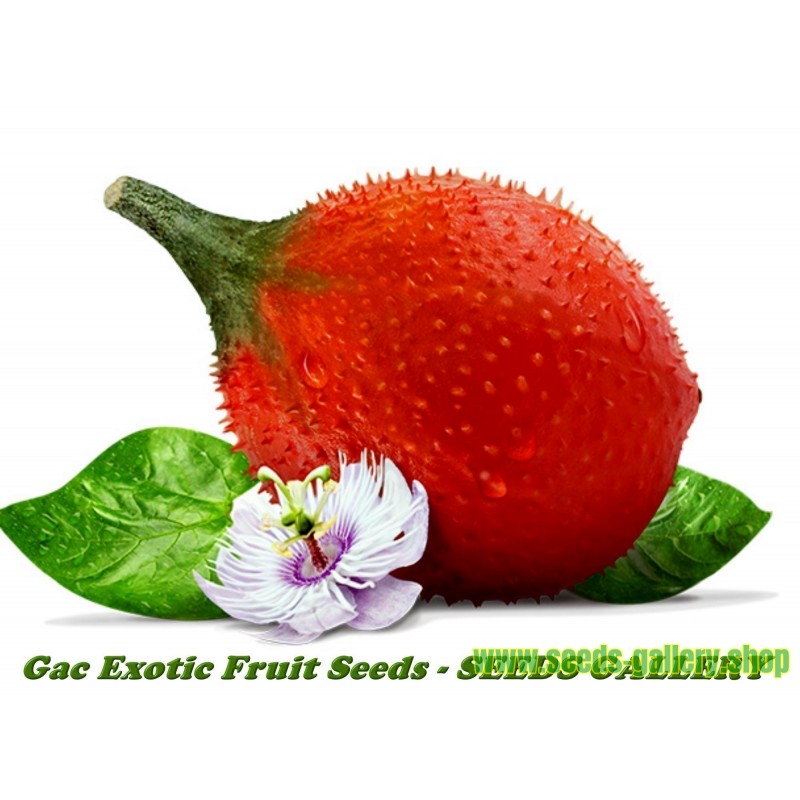
Hindistan'dan çeşitli













GAC MEYVESİ Momordica cochinchinensis 1 adet dev tohum GAC çok yıllık bir bitkidir. ortalama +5-6 derece altında bulunmaması gerekmektedir bu bakımdan dolayı ılıman iklimde bakılmasına dikkat edilmesi gerekmektedir
GAC MEYVESİ Momordica cochinchinensis 1 adet dev tohum GAC çok yıllık bir bitkidir. ortalama +5-6 derece altında bulunmaması gerekmektedir bu bakımdan dolayı ılıman iklimde bakılmasına dikkat edilmesi gerekmektedir Domatesden 70 kat fazla Lycopene Havuçtan 20 kat fazla Beto-carotene Portakaldan 40 kat fazla Vitamin C Mısırdan 40 kat fazla Zeaxanthin Süper sebze kategorisine giren bir sebze-meyve
Aril the consumer to prevent colon cancer. Used to treat cancer. Without the use of chemotherapy.
Gac grows on dioecious vines and is usually collected from fence climbers or from wild plants. The vines can be commonly seen growing on lattices at the entrances to rural homes or in gardens. It only fruits once a year and is found seasonally in local markets. The fruit itself becomes a dark orange color upon ripening, and is typically round or oblong, maturing to a size of about 13 cm in length and 10 cm in diameter. Its exterior skin is covered in small spines while its dark red interior consists of clusters of fleshy pulp and seeds.
It can be propagated by seed or by plant roots. Wetland. Due to the relative vine needs water. Gac will start flowering around 2-3 months after planting to flowering will begin in May and lasts until the flowers in August. Ripe for harvest approximately 20 days during the month. July to February and in the first season can be harvested up to the 30-60 result.
Sowing techniques "GAC FRUIT" to grow faster than normal.
The shell of the seed is very Crackers need a break. To make it grow faster too.
On Crackers with a short knife cleaver Hardshell that will break off easily. Similar to lamb, watermelon seed it again time to grow up to 2.5 weeks, it cleared the light breaks through the soil.
Momordica cochinchinensis is a Southeast Asian fruit found throughout the region from Southern China to Northeastern Australia, mostly Vietnam.
Etymology
It is commonly known as gac, from the Vietnamese gấc (pronounced [ɣək˦˥]) or quả gấc (quả being a classifier for spherical objects such as fruit). It is known as mùbiēguǒ (木鳖果) in Chinese, and variously as Baby Jackfruit, Spiny Bitter Gourd, Sweet Gourd, or Cochinchin Gourd in English.
Characteristics
Because it has a relatively short harvest season (which peaks in December and January), making it less abundant than other foods, gac is typically served at ceremonial or festive occasions in Vietnam, such as Tết (the Vietnamese new year) and weddings. It is most commonly prepared as a dish called xôi gấc, in which the aril and seeds of the fruit are cooked in glutinous rice, imparting both their color and flavor. More recently, the fruit has begun to be marketed outside of Asia in the form of juice dietary supplements because of its allegedly high phytonutrient content.
Growth
Gac grows on dioecious vines and is usually collected from fence climbers or from wild plants. The vines can be commonly seen growing on lattices at the entrances to rural homes or in gardens. It only fruits once a year, and is found seasonally in local markets. The fruit itself becomes a dark orange color upon ripening, and is typically round or oblong, maturing to a size of about 13 cm in length and 10 cm in diameter. Its exterior skin is covered in small spines while its dark red interior consists of clusters of fleshy pulp and seeds.
Traditional uses
Traditionally, gac has been used as both food and medicine in the regions in which it grows. Other than the use of its fruit and leaves for special Vietnamese culinary dishes, gac is also used for its medicinal and nutritional properties. In Vietnam, the seed membranes are said to aid in the relief of dry eyes, as well as to promote healthy vision.[citation needed] Similarly, in traditional Chinese medicine the seeds of gac, known in Mandarin Chinese as mùbiēzǐ (Chinese: 木鳖子), are employed for a variety of internal and external purposes.
Nutrients and phytochemicals
Typical of orange-colored plant foods, gac fruit contains carotenoids such as beta-carotene (provitamin A).[1] Vietnamese children fed a rice dish containing beta-carotene from gac had higher blood levels of beta-carotene than those in the control group.[2] Gac aril oil contains high levels of vitamin E.[3] Fatty acids in the aril oil may facilitate absorption of fat-soluble nutrients, including carotenoids.[4]
Due to its high content of beta-carotene and lycopene,[1][4] gac extracts may be sold as a food supplement in soft capsules or included in a juice blend. Gac contains substantial lycopene, beta-carotene[1] and a protein that may inhibit the proliferation of cancer cells.[5] Two cyclotides isolated, MCoT-I and MCoT-II, may have properties to inhibit trypsin.
Sowing Instructions |
|
|
Propagation: |
Seeds |
|
Pretreat: |
soak in water for 12 hours, or option 2 look piture 10 (last one) |
|
Stratification: |
0 |
|
Sowing Time: |
all year round |
|
Sowing Depth: |
0.5-1 cm |
|
Sowing Mix: |
Coir or sowing mix + sand or perlite |
|
Germination temperature: |
20-25 ° C |
|
Location: |
bright + keep constantly moist not wet |
|
Germination Time: |
1-4 weeks |
|
Watering: |
Water regularly during the growing season |
|
|
|
Bilgi kartı
 Reviews (1)
Reviews (1)Il seme si presenta fresco e intatto.